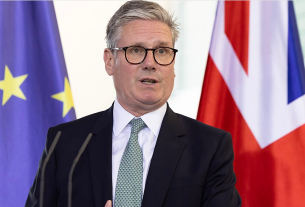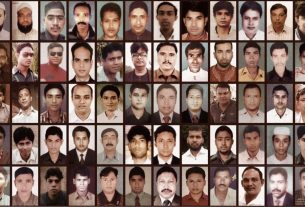|
Getting your Trinity Audio player ready...
|
Białowieża Forest, Poland – July 2025 – In the dense, marshy terrain of Europe’s last primeval forest, humanitarian volunteers are racing against time to aid refugees stranded along the Polish-Belarusian border, where a four-year crisis has escalated into a humanitarian emergency.
🚧 A Border Fortified, But Not Impenetrable
Since 2021, Poland has responded to Belarus’s alleged facilitation of migrant crossings by erecting a five-meter steel fence along its eastern frontier. Despite its imposing structure, the barrier has failed to deter desperate asylum seekers from countries like Syria, Eritrea, Sudan, Somalia, and Afghanistan, many of whom suffer serious injuries from barbed wire and dangerous jumps.
In 2024, Poland recorded 30,000 illegal crossing attempts, while Frontex reported a 200% increase in traffic along the eastern migration route.
🆘 Grupa Granica: Aid in the Shadows
Local NGO Grupa Granica, supported by hundreds of volunteers, has become a lifeline for migrants hidden in the Białowieża National Park. Activists like Aleksandra Chrzanowska deliver food, dry clothing, medical aid, and emotional support—often under threat of legal prosecution.
In 2023, the group responded to 1,400 emergency calls, assisting 3,400 individuals. Yet, their work is increasingly criminalized: five volunteers are currently on trial in Hajnowka for allegedly aiding an Iraqi Kurdish family.
🛑 Suspension of Asylum Rights
On 27 March 2025, Poland suspended the right to apply for asylum at its Belarusian border, citing “instrumentalization” of migration. This move has drawn condemnation from rights groups, including Amnesty International, which called it a flagrant violation of international law.
Migrants now risk immediate pushbacks, even when injured. One Afghan man, treated by Chrzanowska for a deep foot wound sustained while jumping the fence, was denied ambulance access to avoid triggering border enforcement.
🌍 A Crisis in Isolation
Unlike other EU border hotspots, no major international NGOs—aside from Doctors Without Borders—operate in the region. Aid workers face harassment, and parts of the forest have been declared exclusion zones, limiting humanitarian access.
Survivors recount violence from Belarusian soldiers, including forced crossings, beatings, and threats. Polish authorities have also been accused of rubber bullet use, dog attacks, and denial of medical care, according to reports by Oxfam and Egala.
🧭 Humanity Amid Hostility
Despite the risks, volunteers persist. “Helping people is legal,” says Chrzanowska. Her team continues to respond to emergency calls, including a recent case involving four Afghans—one with a broken leg—requiring a doctor’s intervention.
As Poland fortifies its borders and restricts asylum access, the forest remains a silent witness to a growing crisis—where compassion and survival intersect in the shadows of policy and politics.
For more, see DW’s field report and Amnesty International’s legal analysis.



